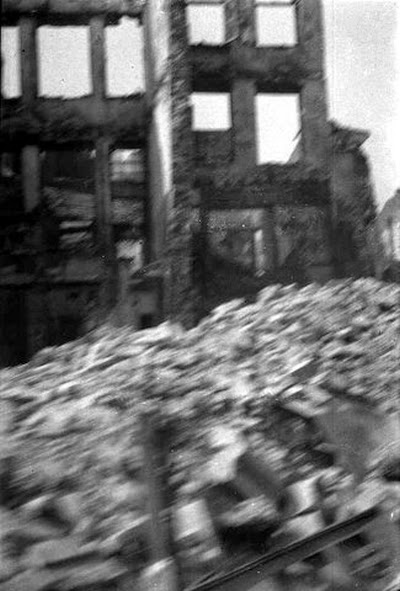Isaiah 14, Part Six: Assyria and Philistia Defeated
Isaiah 14, Part Six: Assyria and Philistia Defeated
Beginning in verse 24, Isaiah's burden changes from Babylon to Assyria and Philistia.
Isaiah 14:24-25 (ESV) The LORD of hosts has sworn: As I have planned, so shall it be, and as I have purposed, so shall it stand, that I will break the Assyrian in my land, and on my mountains trample him underfoot; and his yoke shall depart from them, and his burden from their shoulder.
The LORD is described as having complete, sovereign power over the whole earth:
Isaiah 14:26-27 (ESV) This is the purpose that is purposed concerning the whole earth, and this is the hand that is stretched out over all the nations. For the LORD of hosts has purposed, and who will annul it? His hand is stretched out, and who will turn it back?
The chapter ends with doom pronounced for Philistia:
Isaiah 14:31 (ESV) Wail, O gate; cry out, O city; melt in fear, O Philistia, all of you! For smoke comes out of the north, and there is no straggler in his ranks.
The people of Philistia were descendents of Casluhim, one of the sons of Ham (Genesis 10).
Since the time of Isaac, son of Abraham, the two groups of people, Israel and Philistine, had clashed (Genesis 26). Moses proclaimed God's plan to set up Israel as ruler over all Philistia (Exodus 23).
Israel failed to conquer the Philistines. By the time of Samson, Israel was ruled by Philistia (Judges 14).
David successfully led the nation of Israel in war against the Philistines (1 Chronicles 14).
Generations after David the two nations continued to war. Uzziah, a descendent of David, overran the defenses of Philistia and established Israelite cities throughout the region (2 Chronicles 26).
Uzziah's grandson, Ahaz, took the throne of rule over Israel, but quickly lost control of his kingdom. (2 Chronicles 28).
Ahaz appealed to Assyria for help, thereby bringing to Israel a series of devestating invasions (2 Chronicles 28).
Philistia took advantage of the instability caused by Ahaz, and Isaiah warned them that God would soon punish them:
Isaiah 14:28-31 (ESV) In the year that King Ahaz died came this oracle: Rejoice not, O Philistia, all of you, that the rod that struck you is broken, for from the serpent’s root will come forth an adder, and its fruit will be a flying fiery serpent. And the firstborn of the poor will graze, and the needy lie down in safety; but I will kill your root with famine, and your remnant it will slay. Wail, O gate; cry out, O city; melt in fear, O Philistia, all of you! For smoke comes out of the north, and there is no straggler in his ranks.
In the eyes of Philistia, Uzziah must have been "the rod", and the death of Ahaz would have seemed a good reason for rejoicing. But Isaiah warned that a descendant of Uzziah, Hezekiah the son of Ahaz, would bring much more pain and loss to them.
2 Kings 18:1, 3-8 (ESV) In the third year of Hoshea son of Elah, king of Israel, Hezekiah the son of Ahaz, king of Judah, began to reign...And he did what was right in the eyes of the LORD, according to all that David his father had done. He removed the high places and broke the pillars and cut down the Asherah. And he broke in pieces the bronze serpent that Moses had made, for until those days the people of Israel had made offerings to it (it was called Nehushtan). He trusted in the LORD, the God of Israel, so that there was none like him among all the kings of Judah after him, nor among those who were before him. For he held fast to the LORD. He did not depart from following him, but kept the commandments that the LORD commanded Moses. And the LORD was with him; wherever he went out, he prospered. He rebelled against the king of Assyria and would not serve him. He struck down the Philistines as far as Gaza and its territory, from watchtower to fortified city.




Comments
Post a Comment